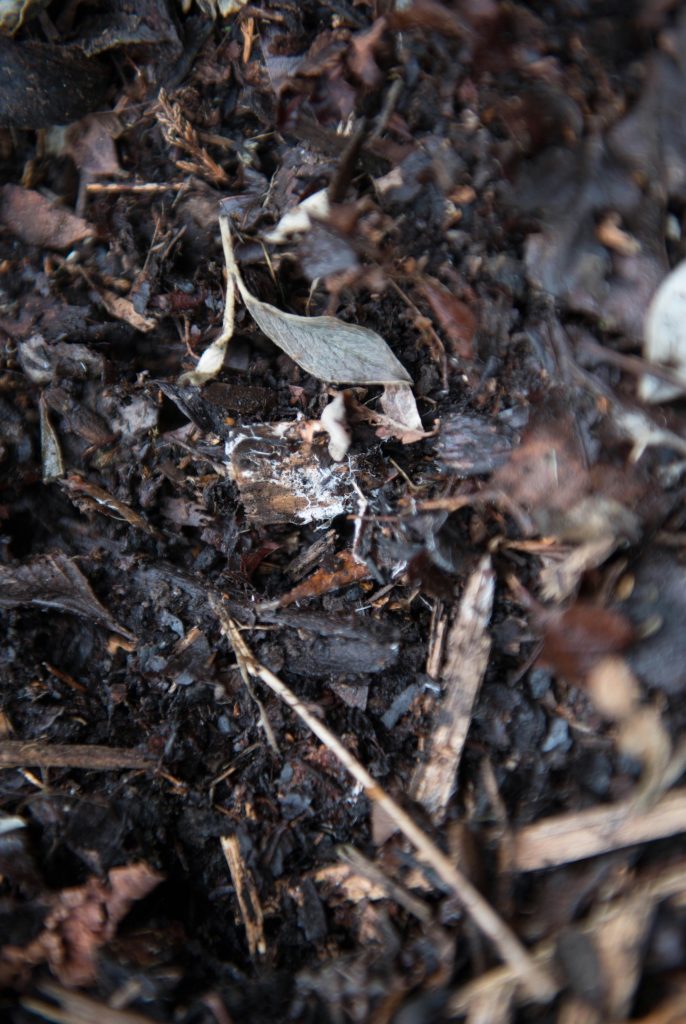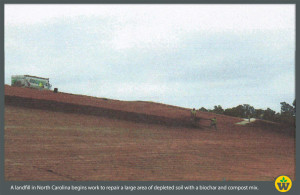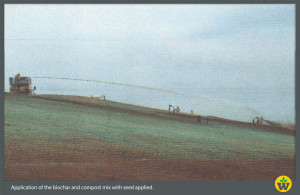Composting With BioChar in Your Garden

Combining biochar with compost offers numerous soil benefits. The organic material in compost activates biochar, amplifying nature’s ability to enrich soil. Incorporating biochar during composting further enhances soil health by reducing nitrogen loss, boosting microbial activity, curbing odors, and accelerating compost maturation.
Tips for Composting with BioChar
- Biochar works best if applied early in the composting process
- Consider 5-15% by volume of the pile with compost
- There is never a bad time to use biochar with compost. If you have an existing pile of compost or if you have already put your compost in the garden it’s appropriate to add biochar to the soil mix.
What is Composting?
Composting is a time-tested way to enrich soil with organic matter and nutrients for plants. It’s made by using microbes and bacteria to break down plant material into a beneficial soil conditioner. This process encourages ongoing microbial activity, speeding up material breakdown and raising temperatures in the pile, which helps eliminate harmful bacteria and pests.
Extra Help in the Garden
Additionally, worms are key in composting. They eat up food scraps and yard waste, turning them into nutrient-rich soil. Their waste, called castings, is packed with good stuff for plants. Plus, their movements help air circulate in the compost, making a great environment for helpful bacteria to thrive and helping plants grow well.
What benefits does Biochar add when using it in compost?
Compost enriched with biochar offers several advantages:
- Reduced Nitrogen Loss: Biochar enhances nitrogen retention, improving the quality of compost as a premium soil amendment.
- Balanced Nitrate Levels, Lower Ammonia: Incorporating biochar promotes fungal activity, leading to higher nitrate levels and reduced ammonia in the compost.
- Faster Maturation: Biochar accelerates temperature rise in compost, speeding up the maturation process.
- Increased Microbial Activity: Biochar’s structure supports microbial growth, fostering a thriving compost ecosystem.
- Lighter Weight: Biochar’s lighter density reduces the overall weight of the compost blend, making it easier to handle.
- Improved Aeration: Biochar’s stable structure provides lasting aeration to the compost blend, enhancing plant growth.
- Eco-Friendly Alternative: Using biochar eliminates the need for peat and vermiculite, promoting sustainable composting practices.
- Enhanced Appearance: Biochar imparts a clean, dark color to the compost, enhancing its visual appeal.
By using Wakefield BioChar in your compost, you:
- Boost Soil Quality: Wakefield BioChar increases organic carbon, enhancing water retention and nitrogen absorption.
- Enhance Natural Nitrogen Retention: Wakefield BioChar fosters microbial activity, aiding in nitrogen retention in the soil.
- Decrease Soil Disease Risks: Wakefield BioChar reduces the likelihood of soil-borne diseases, promoting healthier plants.
- Cultivate a Vibrant Soil Ecosystem: Wakefield BioChar creates an optimal environment for plants to thrive, ensuring a healthy soil ecosystem year after year.
- Odor Control: Wakefield BioChar carries an added benefit when used with compost by reducing odors. Composting can generate unpleasant odors, especially when using certain feedstocks like manure. Wakefield BioChar helps minimize both initial and long-term odors in the compost pile, making the composting process more pleasant and manageable
Biochar and Compost Mix Help Restore The Health To Your Soil
In North Carolina, a consulting group specializing in biochar facilitated the restoration of land near a landfill, which had been severely eroded, resembling a desolate landscape. To prevent further erosion and revitalize the soil, a blend of biochar and compost was applied. This combination kickstarted the soil’s rejuvenation journey, promoting a balanced environment of beneficial bacteria, essential nutrients, moisture, and optimal conditions for plant growth.
In just around 2 weeks, the field saw remarkable results: the grass seed not only germinated but thrived! While biochar played a part, other factors contributed to this success. The consulting group understood that biochar alone wouldn’t work; it needed organic matter to charge up the soil. They applied a 50/50 mix of biochar and compost at a rate of 1/4 lb per square foot.
After a month, the transformation was astonishing. The once barren hill looked completely different. Here’s the same infertile soil after 4 weeks of the biochar and compost mix, along with some grass seed:
This demonstrates the power of biochar in reclaiming land, whether for gardening, farming, or construction projects like landfill retaining walls. With biochar, you can maximize plant production and achieve remarkable results. Live long and prosper!
Happy composting!
Better Soil. Better World.








